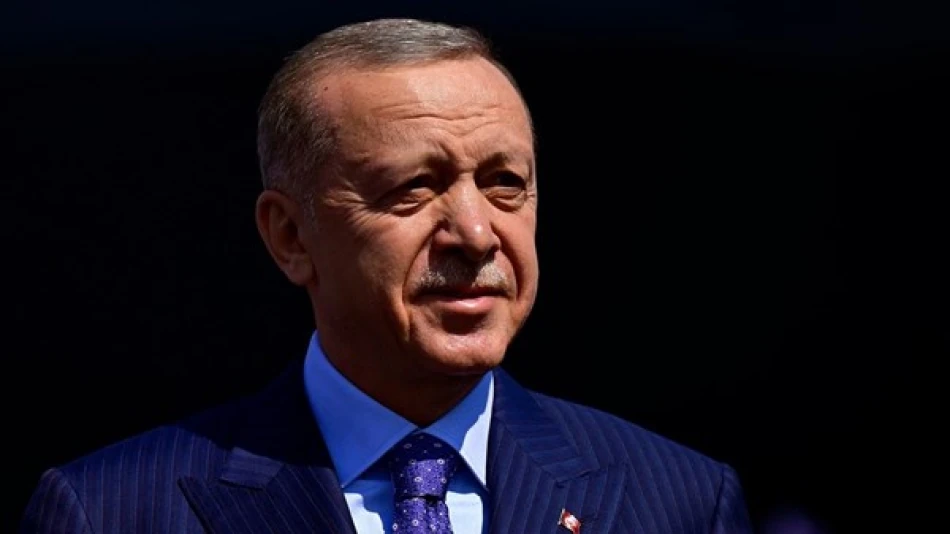
Turkey Supports Inclusive Ukraine Peace Process, Erdogan Says
Turkey Positions Itself as Key Ukraine Peace Broker Despite Limited Progress
Turkish President Recep Tayyip Erdogan has reaffirmed Ankara's commitment to facilitating comprehensive peace negotiations in Ukraine, emphasizing the need for "all parties" to participate in any lasting resolution. The statement, made during a Wednesday phone call with Russian President Vladimir Putin, underscores Turkey's strategic positioning as a neutral mediator despite three rounds of fruitless talks since May.
Erdogan's Diplomatic Balancing Act
During the phone conversation, Erdogan told Putin that Turkey would support peace processes involving all stakeholders—a diplomatic reference to Ukraine without explicitly naming the country. This careful language reflects Turkey's delicate position as a NATO member maintaining dialogue with Russia while supporting Ukrainian sovereignty.
Putin reportedly thanked Erdogan for hosting previous peace talks, signaling Moscow's continued interest in Turkey's mediation efforts despite the lack of substantive breakthroughs.
Limited Results from Istanbul Negotiations
Since May, Turkey has hosted three rounds of negotiations between Kyiv and Moscow in Istanbul, with modest outcomes limited to prisoner exchange agreements. The talks have failed to produce meaningful progress on core issues such as territorial disputes, security guarantees, or ceasefire arrangements.
Why Turkey's Mediation Matters
Turkey's unique geopolitical position makes it one of the few countries capable of maintaining dialogue with both Russia and Ukraine. Unlike European Union nations that have imposed extensive sanctions on Moscow, Turkey has preserved economic and diplomatic ties with Russia while providing military support to Ukraine through drone sales and diplomatic backing.
Strategic Implications for Regional Stability
Erdogan's renewed peace push comes at a critical juncture as winter approaches and energy concerns mount across Europe. Turkey's role as a mediator serves multiple strategic interests: enhancing its regional influence, positioning itself as indispensable to Western allies, and maintaining crucial economic relationships with Russia, particularly in energy and tourism sectors.
The Broader Context
Turkey's mediation efforts echo its historical role in regional conflicts, from Syria to Libya. However, the Ukraine crisis presents unique challenges given the direct involvement of major powers and the existential nature of the conflict for Ukraine. Success would significantly elevate Turkey's international standing, while continued failure risks marginalizing Ankara's influence in future diplomatic initiatives.
The persistence of these diplomatic contacts, despite limited results, suggests both Moscow and Kyiv recognize the value of maintaining communication channels, even as military operations continue on the ground.
Most Viewed News

 Layla Al Mansoori
Layla Al Mansoori






